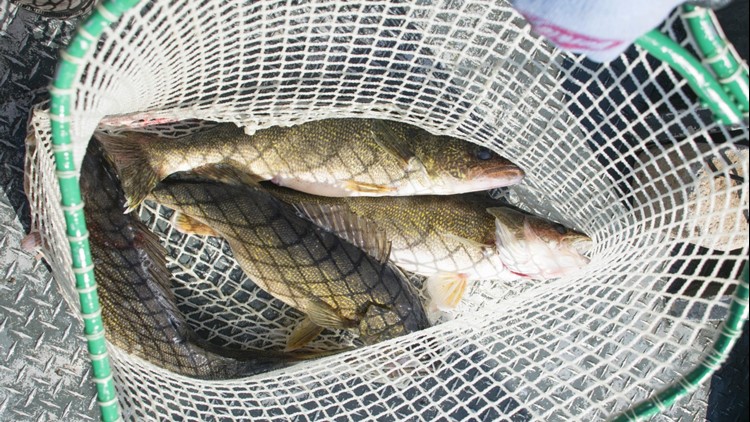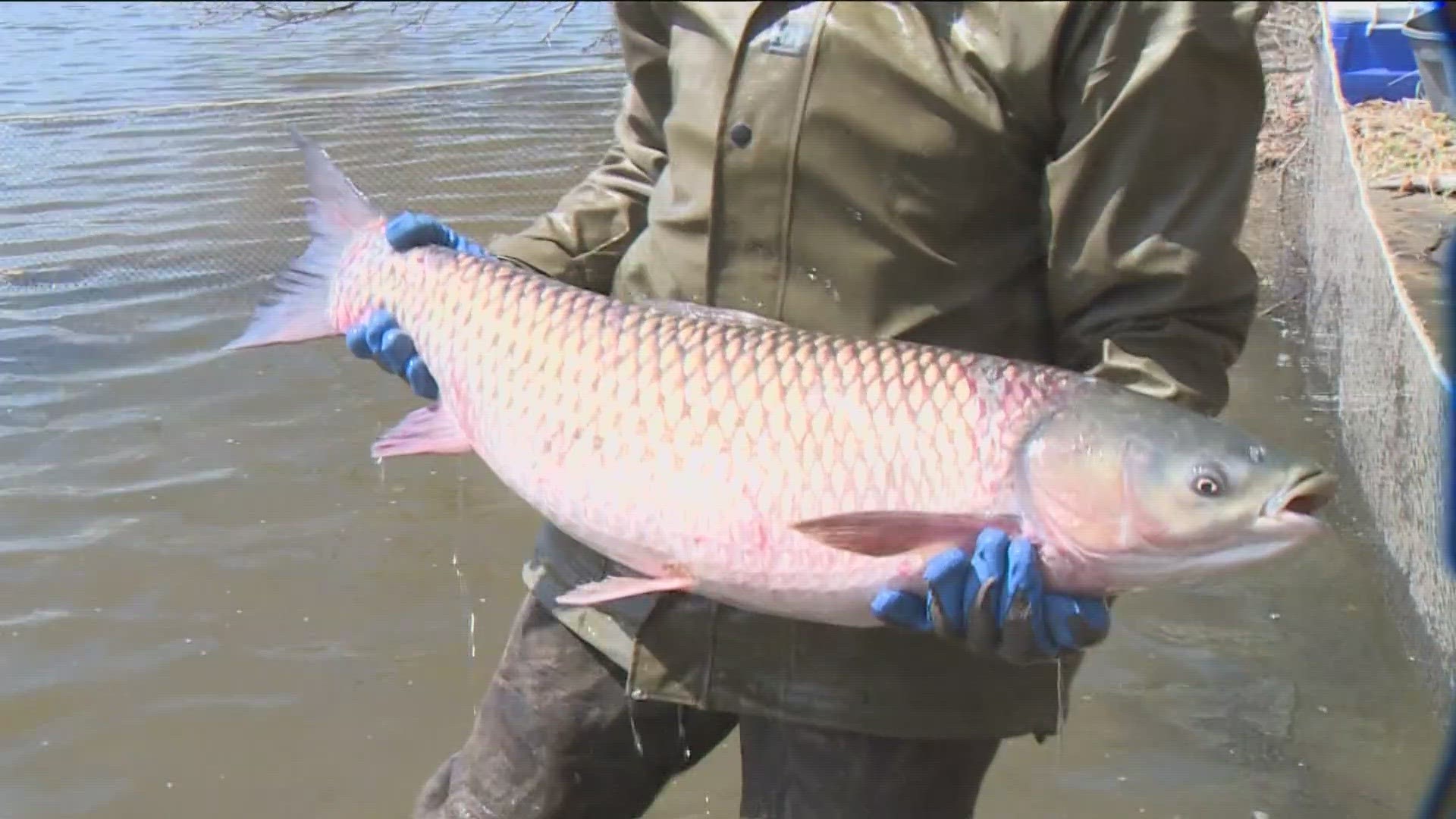ST PAUL, Minn. — Social distancing guidelines are behind a decision by the Minnesota Department of Natural Resources (DNR) to cancel egg harvesting operations for some of the state's most popular game fish this spring.
DNR fisheries officials announced Tuesday that "egg take" operations will not be conducted on walleye, northern pike, muskellunge (muskies) and steelhead in 2020. The harvest of eggs and sperm from game fish is what the DNR calls "a labor intensive effort that requires teams of 6-8 people working in close proximity."
A statement released by the agency Tuesday says after a careful examination of whether the egg take process could be re-engineered, the DNR determined it is not possible to safely handle fish while harvesting eggs while still maintaining appropriate social distancing to protect staff from COVID-19. Fisheries experts maintain that suspending egg take operations will have minimal impact on game fish numbers.
“Fish populations naturally are made up of fish hatched in different years, so a missing or weak year class is not uncommon,” explains Brad Parsons, fisheries section manager for the DNR. “In fact, in lakes with natural reproduction, a strong year class often follows a weak year class, so not stocking for one year might actually benefit the following year’s stocked fry.”
The DNR collects eggs each spring to hatch, raise and then release either as fry or fingerlings to stock Minnesota lakes and rivers that have low, or no natural reproduction of these game fish. While stocking is important to maintain populations and fishing opportunities over the long term, the DNR remains confident that, missing one year will not cause long-term harm to the overall fish population.
Since hatchery rearing ponds will not be in use, the DNR will lower the water levels in many of these ponds to improve long-term productivity, and complete dike and pond improvement projects.
Similar stories



